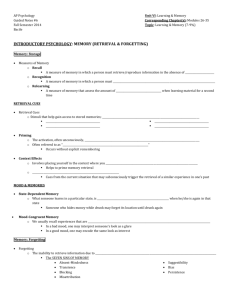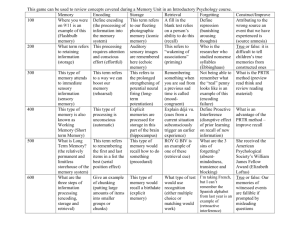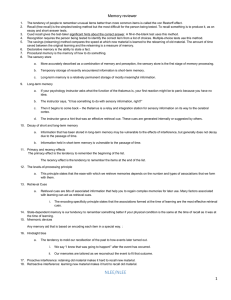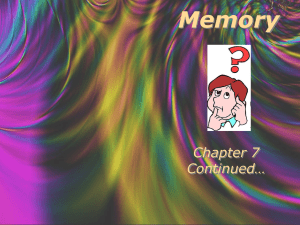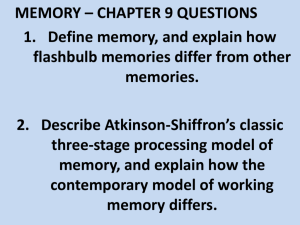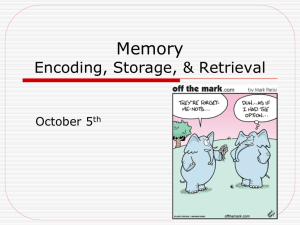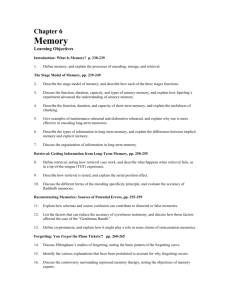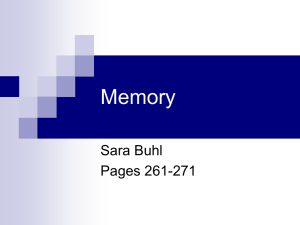Retrieval: Getting Information Out 7
advertisement
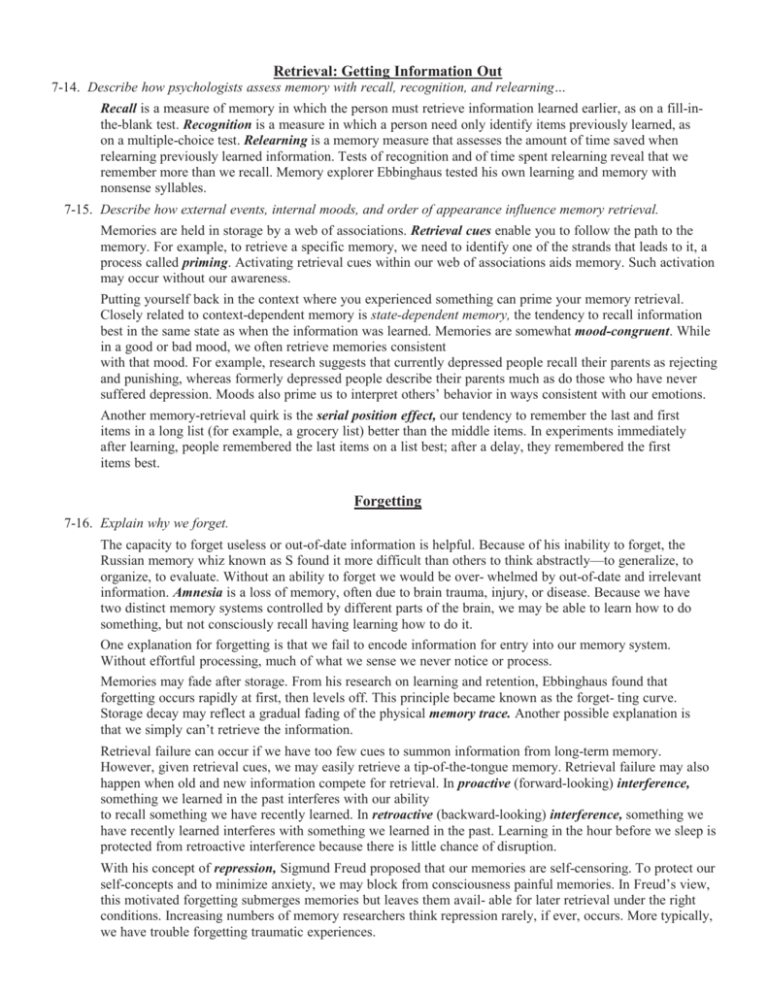
Retrieval: Getting Information Out 7-14. Describe how psychologists assess memory with recall, recognition, and relearning… Recall is a measure of memory in which the person must retrieve information learned earlier, as on a fill-inthe-blank test. Recognition is a measure in which a person need only identify items previously learned, as on a multiple-choice test. Relearning is a memory measure that assesses the amount of time saved when relearning previously learned information. Tests of recognition and of time spent relearning reveal that we remember more than we recall. Memory explorer Ebbinghaus tested his own learning and memory with nonsense syllables. 7-15. Describe how external events, internal moods, and order of appearance influence memory retrieval. Memories are held in storage by a web of associations. Retrieval cues enable you to follow the path to the memory. For example, to retrieve a specific memory, we need to identify one of the strands that leads to it, a process called priming. Activating retrieval cues within our web of associations aids memory. Such activation may occur without our awareness. Putting yourself back in the context where you experienced something can prime your memory retrieval. Closely related to context-dependent memory is state-dependent memory, the tendency to recall information best in the same state as when the information was learned. Memories are somewhat mood-congruent. While in a good or bad mood, we often retrieve memories consistent with that mood. For example, research suggests that currently depressed people recall their parents as rejecting and punishing, whereas formerly depressed people describe their parents much as do those who have never suffered depression. Moods also prime us to interpret others’ behavior in ways consistent with our emotions. Another memory-retrieval quirk is the serial position effect, our tendency to remember the last and first items in a long list (for example, a grocery list) better than the middle items. In experiments immediately after learning, people remembered the last items on a list best; after a delay, they remembered the first items best. Forgetting 7-16. Explain why we forget. The capacity to forget useless or out-of-date information is helpful. Because of his inability to forget, the Russian memory whiz known as S found it more difficult than others to think abstractly—to generalize, to organize, to evaluate. Without an ability to forget we would be over- whelmed by out-of-date and irrelevant information. Amnesia is a loss of memory, often due to brain trauma, injury, or disease. Because we have two distinct memory systems controlled by different parts of the brain, we may be able to learn how to do something, but not consciously recall having learning how to do it. One explanation for forgetting is that we fail to encode information for entry into our memory system. Without effortful processing, much of what we sense we never notice or process. Memories may fade after storage. From his research on learning and retention, Ebbinghaus found that forgetting occurs rapidly at first, then levels off. This principle became known as the forget- ting curve. Storage decay may reflect a gradual fading of the physical memory trace. Another possible explanation is that we simply can’t retrieve the information. Retrieval failure can occur if we have too few cues to summon information from long-term memory. However, given retrieval cues, we may easily retrieve a tip-of-the-tongue memory. Retrieval failure may also happen when old and new information compete for retrieval. In proactive (forward-looking) interference, something we learned in the past interferes with our ability to recall something we have recently learned. In retroactive (backward-looking) interference, something we have recently learned interferes with something we learned in the past. Learning in the hour before we sleep is protected from retroactive interference because there is little chance of disruption. With his concept of repression, Sigmund Freud proposed that our memories are self-censoring. To protect our self-concepts and to minimize anxiety, we may block from consciousness painful memories. In Freud’s view, this motivated forgetting submerges memories but leaves them avail- able for later retrieval under the right conditions. Increasing numbers of memory researchers think repression rarely, if ever, occurs. More typically, we have trouble forgetting traumatic experiences.


